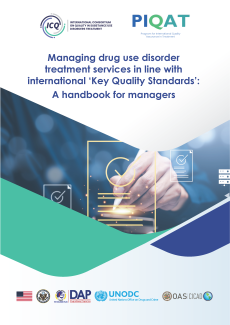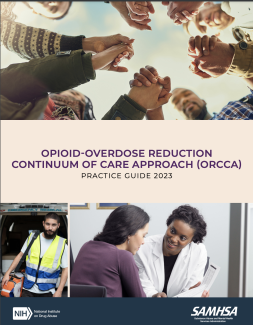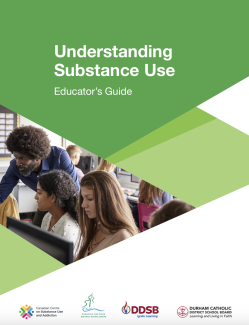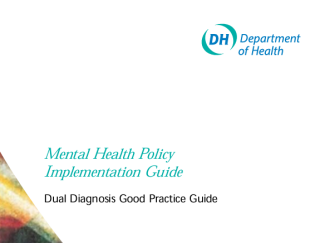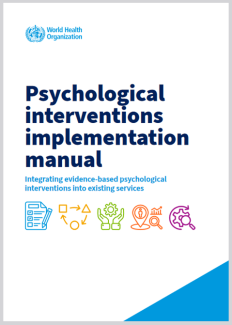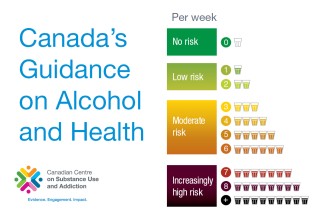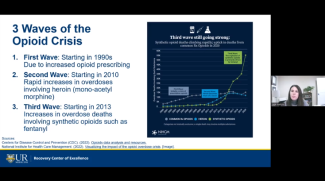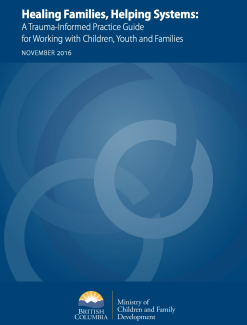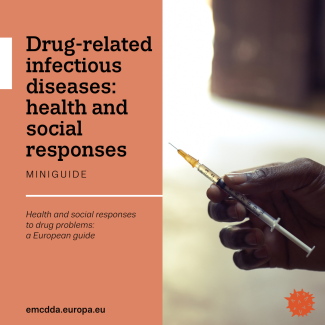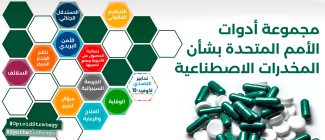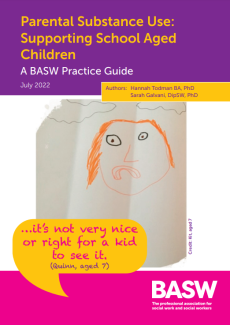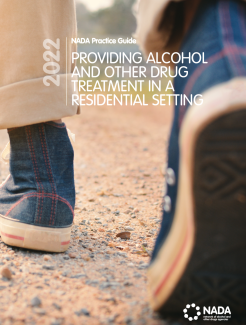Search
The Power of Collaboration Project: Substance Use Disorder treatment for women
The Power of Collaboration is a joint project between ISSUP and the GWN. This initiative delves into three critical areas in substance use disorder (SUD) treatment for women:
-
MIND THE GAP: GLOBAL SURVEY EXAMINING ACCESS FOR SUBSTANCE...
Opioid-Overdose Reduction Continuum of Care Approach (ORCCA) Practice Guide 2023
This guide was drawn from HEALing Communities Study (HCS) learnings to-date and expert insights to provide guidance regarding implementation of ORCCA menu strategies.
Understanding Substance Use: Educator's Guide
The guide, co-developed by the Canadian Centre on Substance Use and Addiction (CCSA) and several school boards, aims to equip educators with knowledge and resources to promote well-being and reduce substance-related harms among youth.
Des...
Dual diagnosis good practice guide
Substance misuse is common among people with severe mental health problems, and mental health problems are common among those with substance misuse problems. This guide summarises policy and good practice for providing mental health...
Psychological interventions implementation manual: integrating evidence-based psychological interventions into existing services
New Guidance on Alcohol
"Drink Less, Live More" is the message of a new advertising campaign launched by the Canadian Centre on Substance Use and Addiction (CCSA) to promote Canada's Guidance on Alcohol and Health. Starting in early October, the digital campaign...
Synthetic Opioids: Navigating a Changing Landscape in the Treatment of Opioid Use Disorder
Healing Families, Helping Systems: A Trauma-Informed Practice Guide for Working with Children, Youth & Families
This guide is concerned with advancing understanding and action about trauma-informed approaches that support program and service delivery for/with children, youth, and families. A trauma-informed approach is a system-wide approach that is...
Centre for disease control prevention factsheets: HIV and substance use
Sharing needles, syringes, or other drug injection equipment—for example, cookers—puts people at risk for getting or transmitting HIV and other infections.
In addition to being at risk for HIV and viral hepatitis, people who inject drugs...
HIV and people who use drugs: Factsheet
The 2021-2026 Global AIDS Strategy has bold and critical new targets on realizing human rights, reducing stigma, discrimination and violence and removing harmful punitive laws as a pathway to ending inequalities and ultimately ending AIDS.
...Responding to drug-related infectious diseases: EMCDDA mini guide
Sharing drug injecting equipment increases the risk of transmitting and acquiring blood-borne infections, such as HIV and hepatitis B and C. While hepatitis C is the most prevalent blood-borne viral infection among people who inject drugs...
United Nations Synthetic Drug Toolkit
The United Nations Synthetic Drug Toolkit supports the international community in implementing comprehensive response measures to address the synthetic drug problem.
The toolkit was developed in response to Commission on Narcotic Drugs ...
Youth Assessment Tool
This assessment tool can be used by any health and social services and programs that serve young people, including substance use services, mental health services, youth treatment services, harm reduction services, youth shelters, community...
Prevention of Opioid Use Education Materials
Mid-America Addiction Technology Transfer Center (MATTC) partnered with the Ethnic Communities Opioid Response Network in Missouri, the Addiction Policy Forum, and the Opioid Response Network (ORN in IA, KS, MO, and NE) to translate 5...
Parental Substance Use: Supporting School Aged Children (BASW Practice Guide)
Children living with parents who use substances are a group of children who are overlooked in legislation, policy and practice.
This guide draws on research that puts children’s voices front and centre.
Findings from safeguarding practice...
Grief: Helping Someone Else in the Aftermath of Loss
In the wake of loss, it can be hard to take care of those you care about who are grieving. As with self-care, there are many possible ways to offer support to someone who is grieving, and a variety of factors that affect how you can offer...
Grief: Taking Care of Yourself in the Aftermath of Loss
This factsheet, published by the National Centre for PTSD, discusses the ways in which we can engage in self-care in the wake of loss.
The factsheet provides an overview of grief and some of the theories and processes that are associated...
Providing alcohol and other drug treatment in a residential setting
Workers who provide AOD treatment to people in residential settings need to have the most up-to-date and evidenced-based practice approaches at their fingertips.
In this comprehensive resource, you will find research outlining the...
Share the Knowledge: ISSUP members can post in the Knowledge Share – Sign in or become a member
